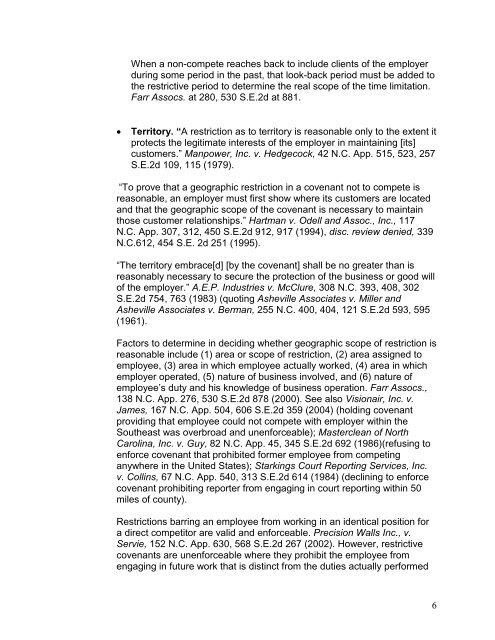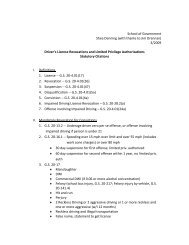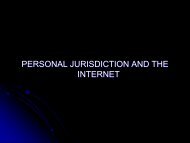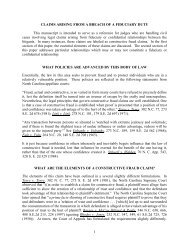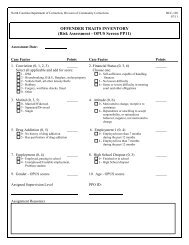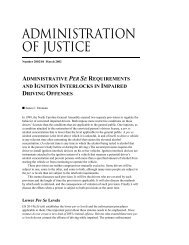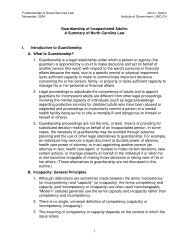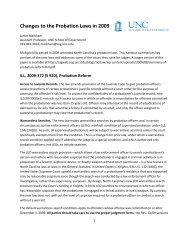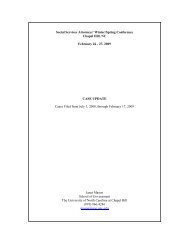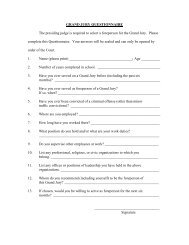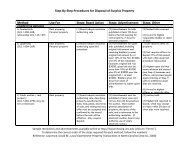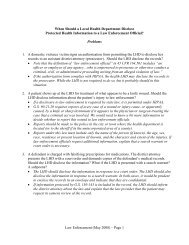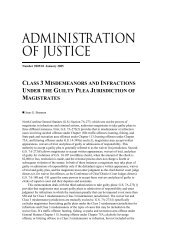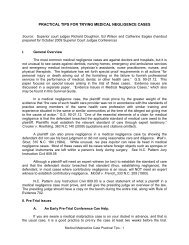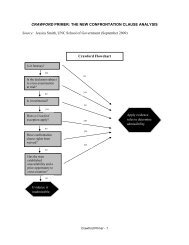Covenants Not to Compete (TROs and Preliminary Injunctions
Covenants Not to Compete (TROs and Preliminary Injunctions
Covenants Not to Compete (TROs and Preliminary Injunctions
Create successful ePaper yourself
Turn your PDF publications into a flip-book with our unique Google optimized e-Paper software.
When a non-compete reaches back <strong>to</strong> include clients of the employer<br />
during some period in the past, that look-back period must be added <strong>to</strong><br />
the restrictive period <strong>to</strong> determine the real scope of the time limitation.<br />
Farr Assocs. at 280, 530 S.E.2d at 881.<br />
• Terri<strong>to</strong>ry. “A restriction as <strong>to</strong> terri<strong>to</strong>ry is reasonable only <strong>to</strong> the extent it<br />
protects the legitimate interests of the employer in maintaining [its]<br />
cus<strong>to</strong>mers.” Manpower, Inc. v. Hedgecock, 42 N.C. App. 515, 523, 257<br />
S.E.2d 109, 115 (1979).<br />
“To prove that a geographic restriction in a covenant not <strong>to</strong> compete is<br />
reasonable, an employer must first show where its cus<strong>to</strong>mers are located<br />
<strong>and</strong> that the geographic scope of the covenant is necessary <strong>to</strong> maintain<br />
those cus<strong>to</strong>mer relationships.” Hartman v. Odell <strong>and</strong> Assoc., Inc., 117<br />
N.C. App. 307, 312, 450 S.E.2d 912, 917 (1994), disc. review denied, 339<br />
N.C.612, 454 S.E. 2d 251 (1995).<br />
“The terri<strong>to</strong>ry embrace[d] [by the covenant] shall be no greater than is<br />
reasonably necessary <strong>to</strong> secure the protection of the business or good will<br />
of the employer.” A.E.P. Industries v. McClure, 308 N.C. 393, 408, 302<br />
S.E.2d 754, 763 (1983) (quoting Asheville Associates v. Miller <strong>and</strong><br />
Asheville Associates v. Berman, 255 N.C. 400, 404, 121 S.E.2d 593, 595<br />
(1961).<br />
Fac<strong>to</strong>rs <strong>to</strong> determine in deciding whether geographic scope of restriction is<br />
reasonable include (1) area or scope of restriction, (2) area assigned <strong>to</strong><br />
employee, (3) area in which employee actually worked, (4) area in which<br />
employer operated, (5) nature of business involved, <strong>and</strong> (6) nature of<br />
employee’s duty <strong>and</strong> his knowledge of business operation. Farr Assocs.,<br />
138 N.C. App. 276, 530 S.E.2d 878 (2000). See also Visionair, Inc. v.<br />
James, 167 N.C. App. 504, 606 S.E.2d 359 (2004) (holding covenant<br />
providing that employee could not compete with employer within the<br />
Southeast was overbroad <strong>and</strong> unenforceable); Masterclean of North<br />
Carolina, Inc. v. Guy, 82 N.C. App. 45, 345 S.E.2d 692 (1986)(refusing <strong>to</strong><br />
enforce covenant that prohibited former employee from competing<br />
anywhere in the United States); Starkings Court Reporting Services, Inc.<br />
v. Collins, 67 N.C. App. 540, 313 S.E.2d 614 (1984) (declining <strong>to</strong> enforce<br />
covenant prohibiting reporter from engaging in court reporting within 50<br />
miles of county).<br />
Restrictions barring an employee from working in an identical position for<br />
a direct competi<strong>to</strong>r are valid <strong>and</strong> enforceable. Precision Walls Inc., v.<br />
Servie, 152 N.C. App. 630, 568 S.E.2d 267 (2002). However, restrictive<br />
covenants are unenforceable where they prohibit the employee from<br />
engaging in future work that is distinct from the duties actually performed<br />
6


